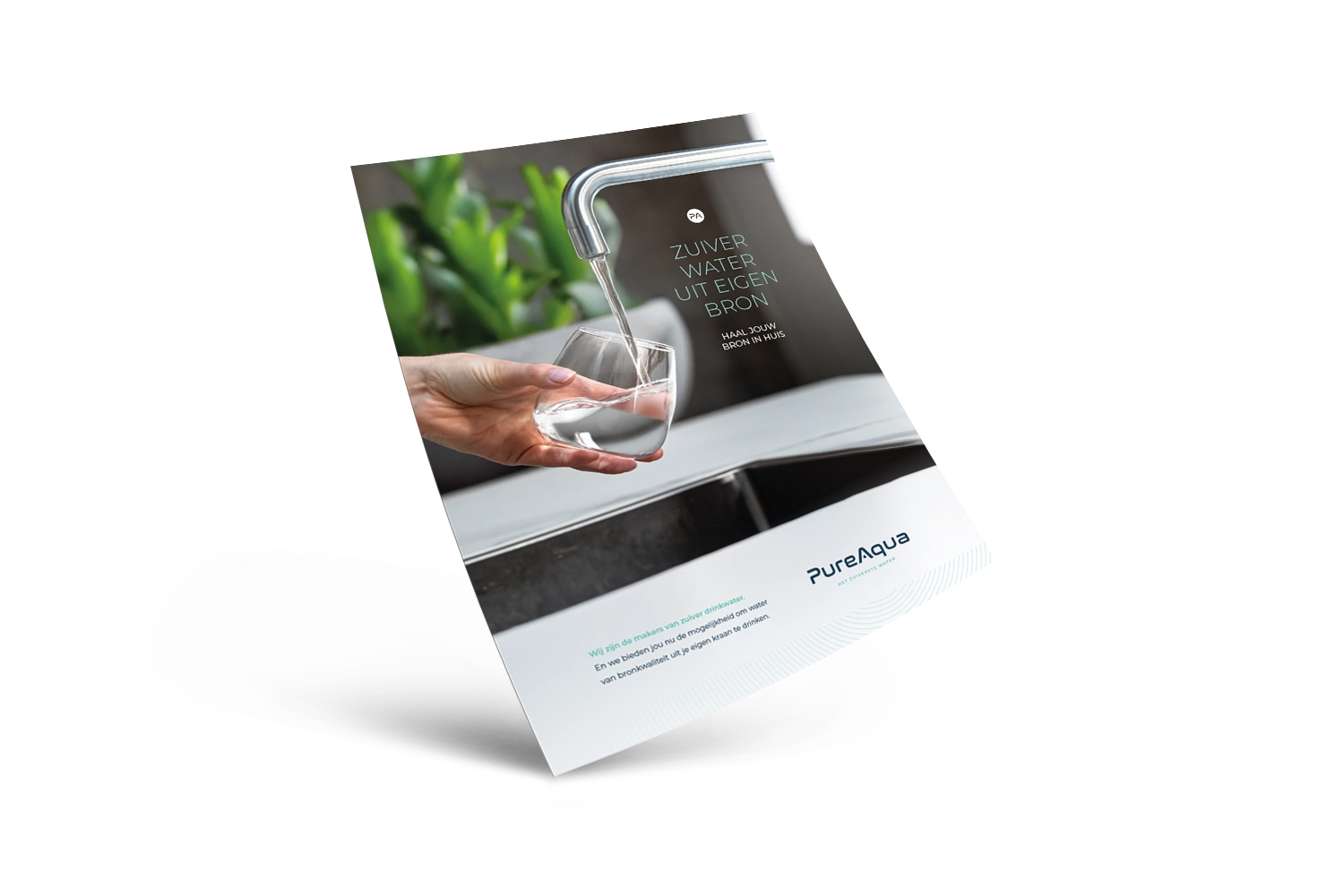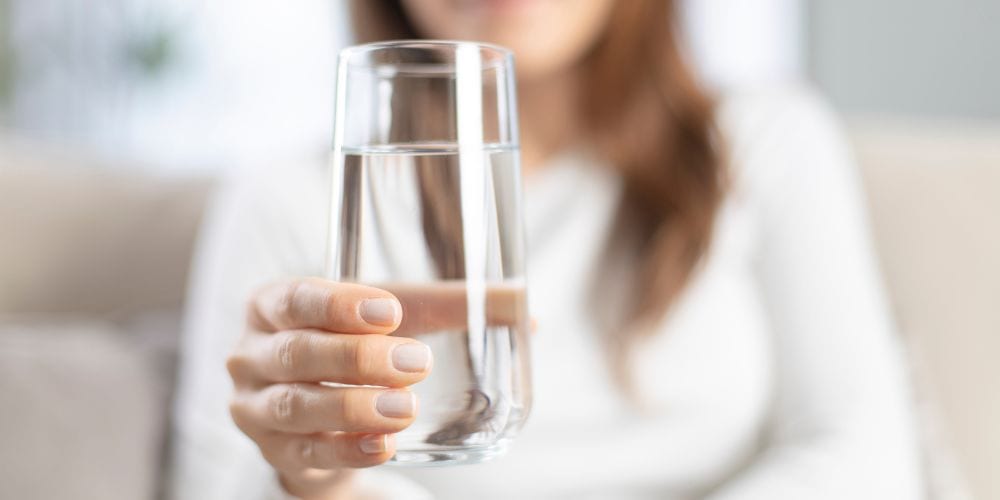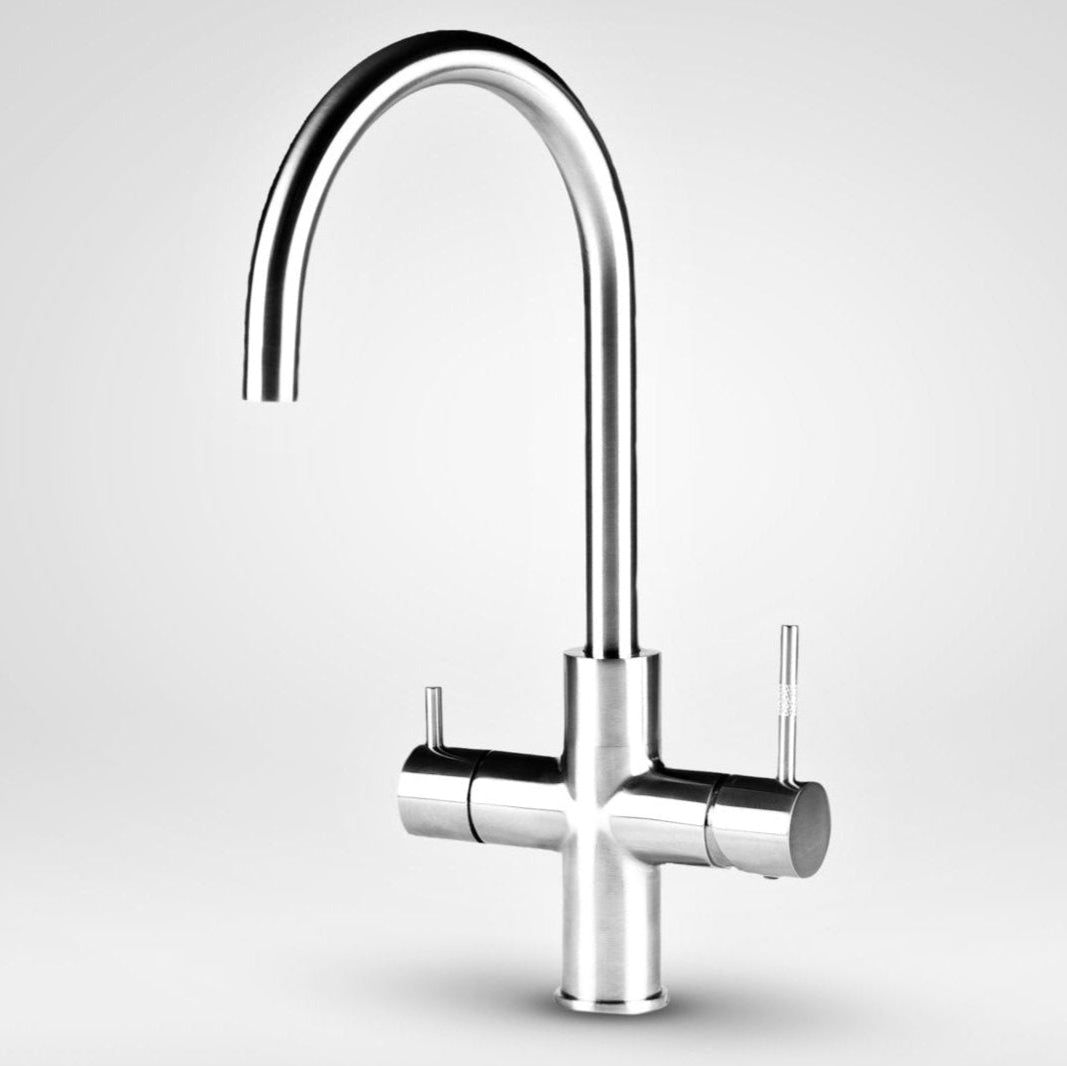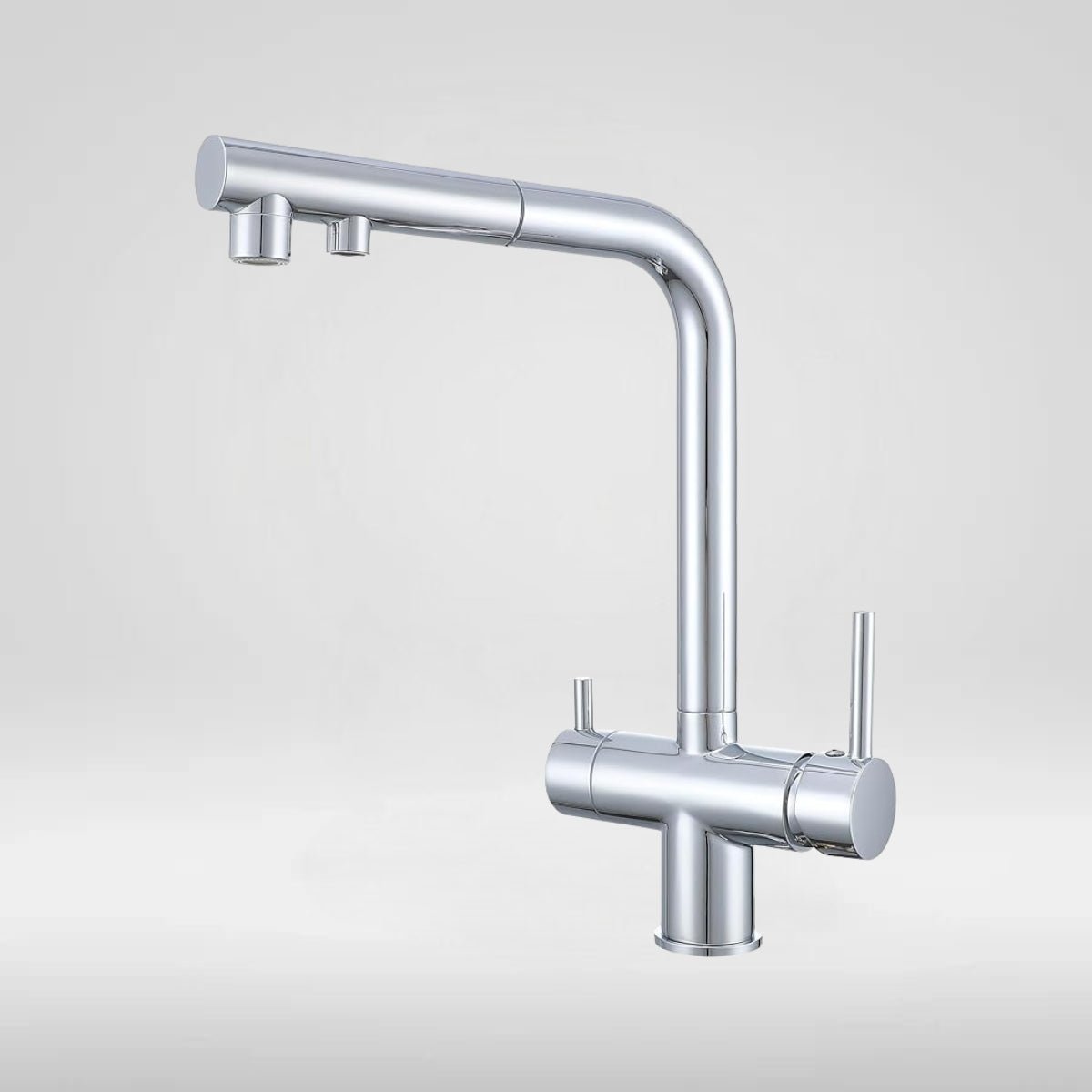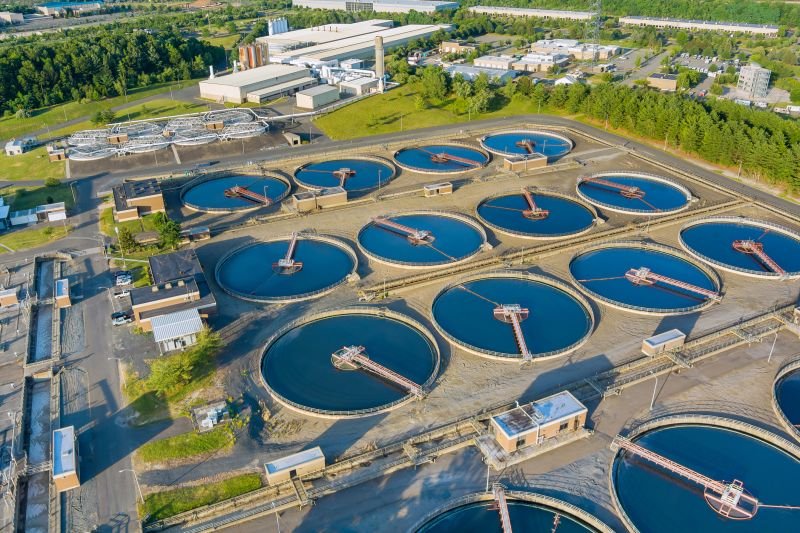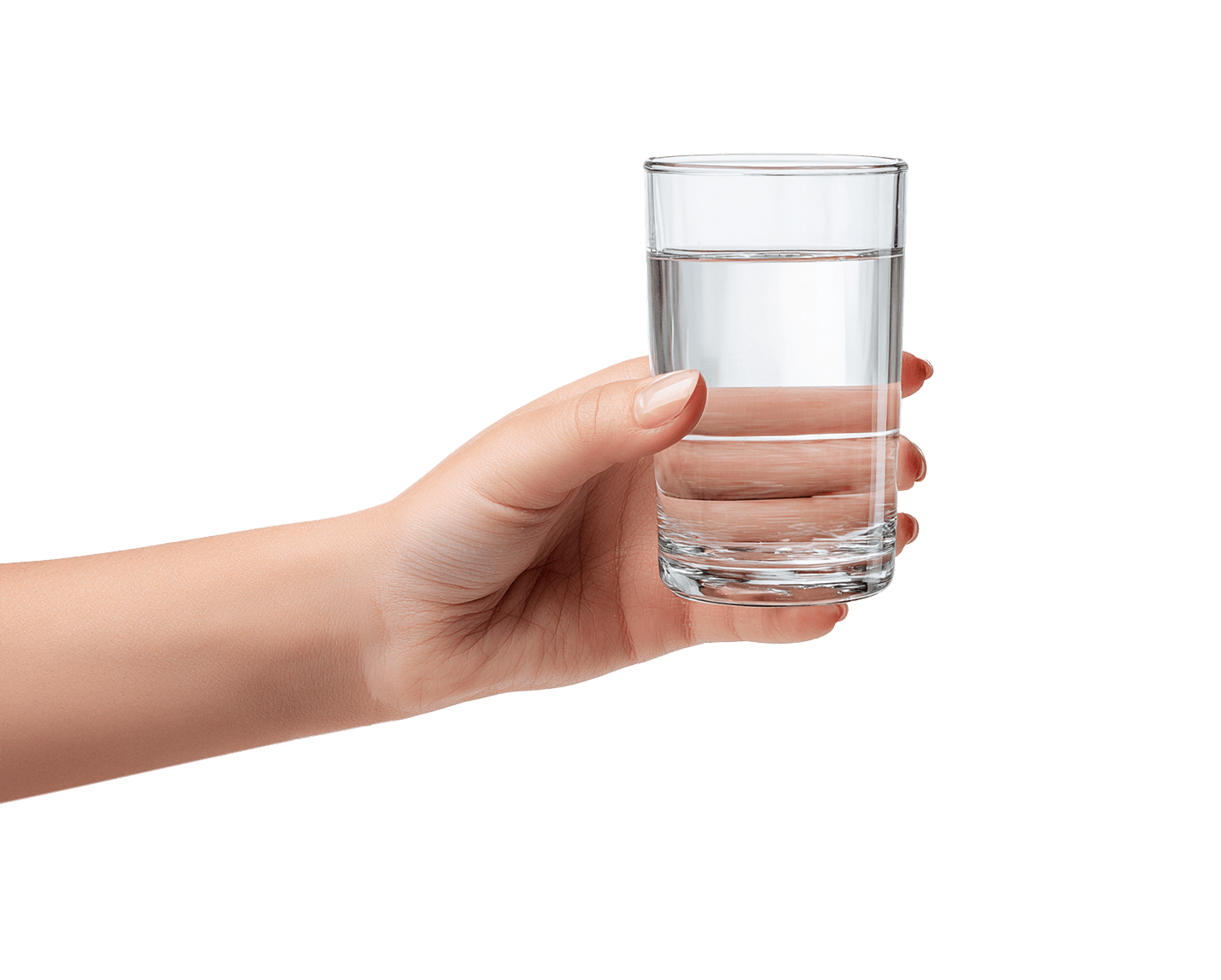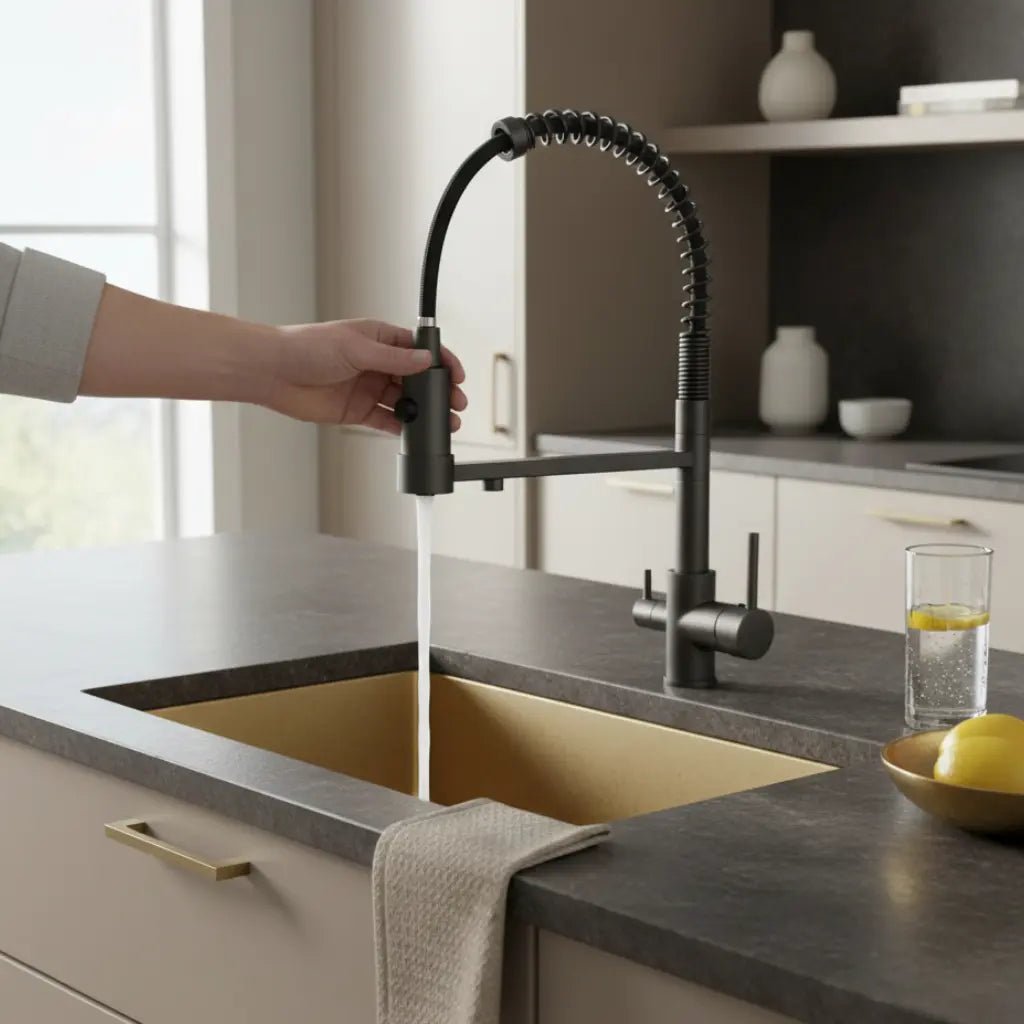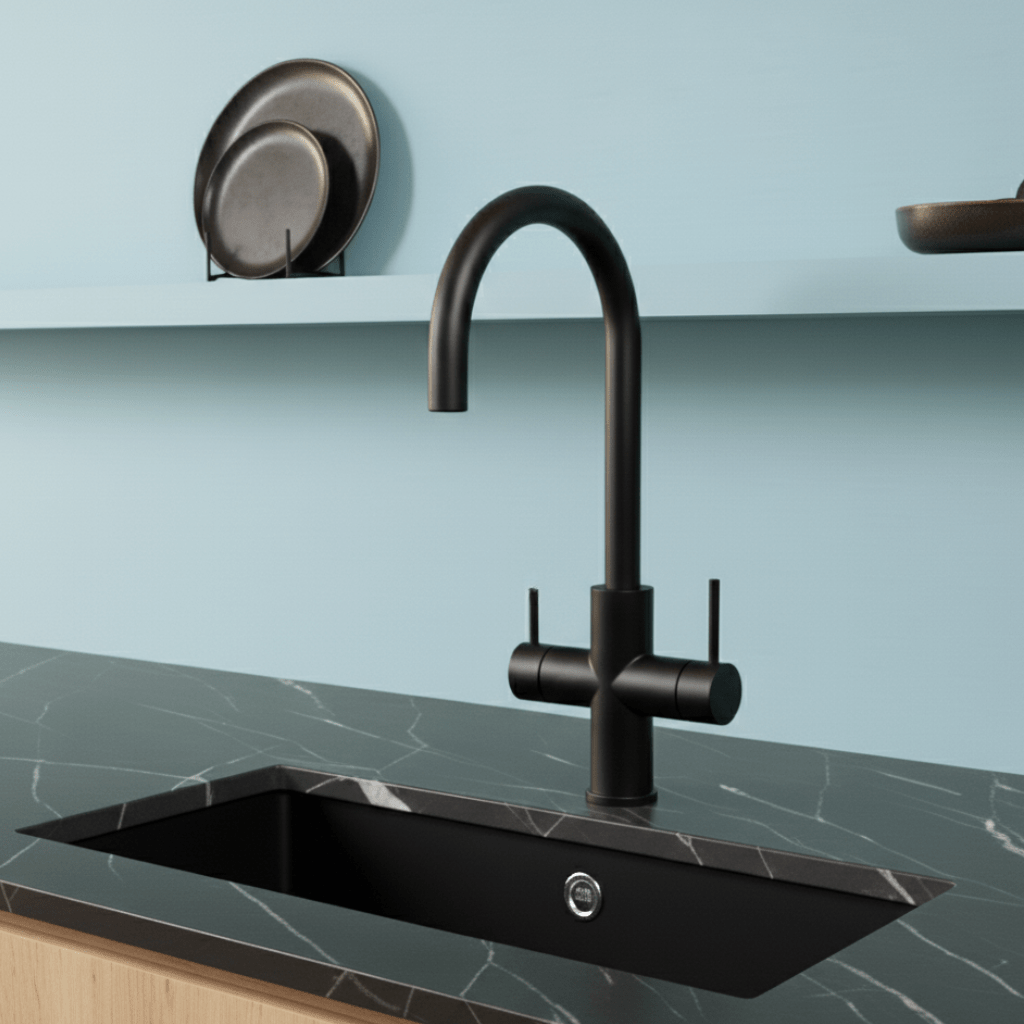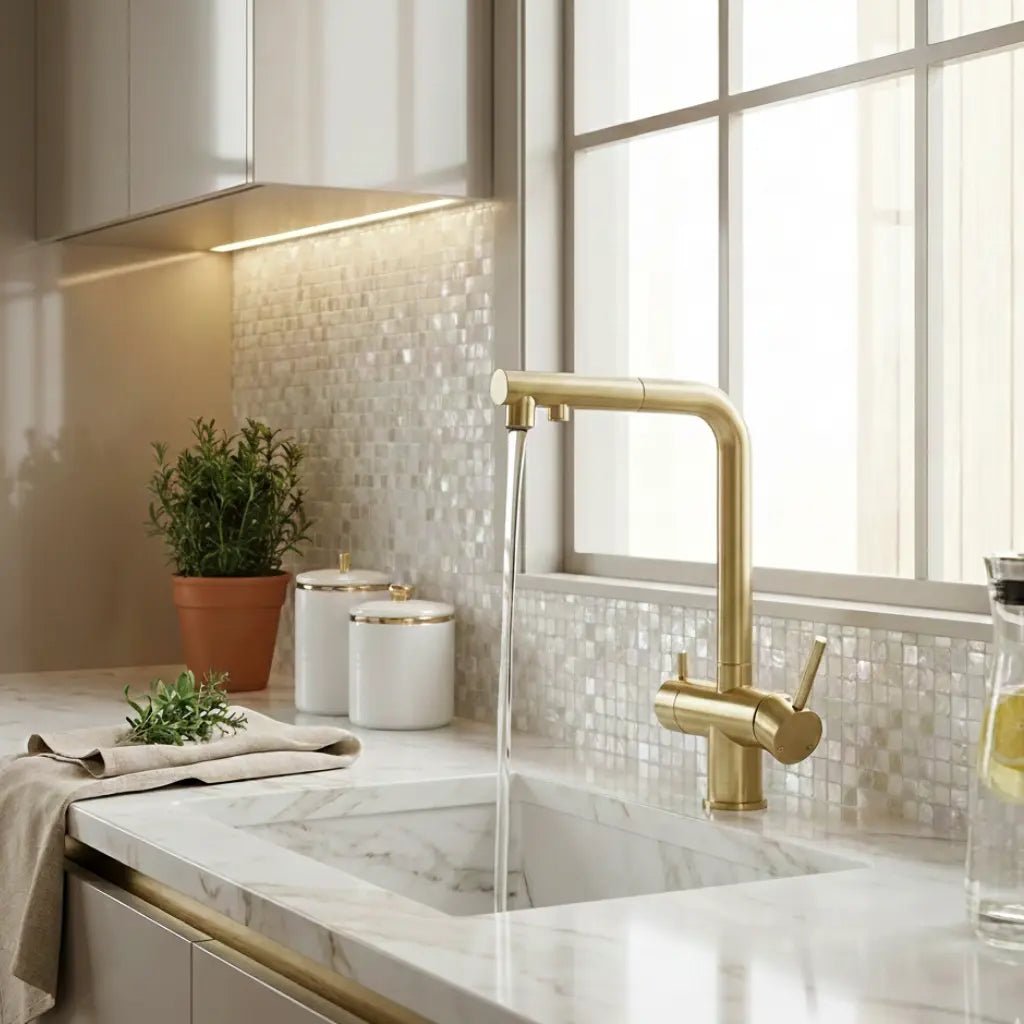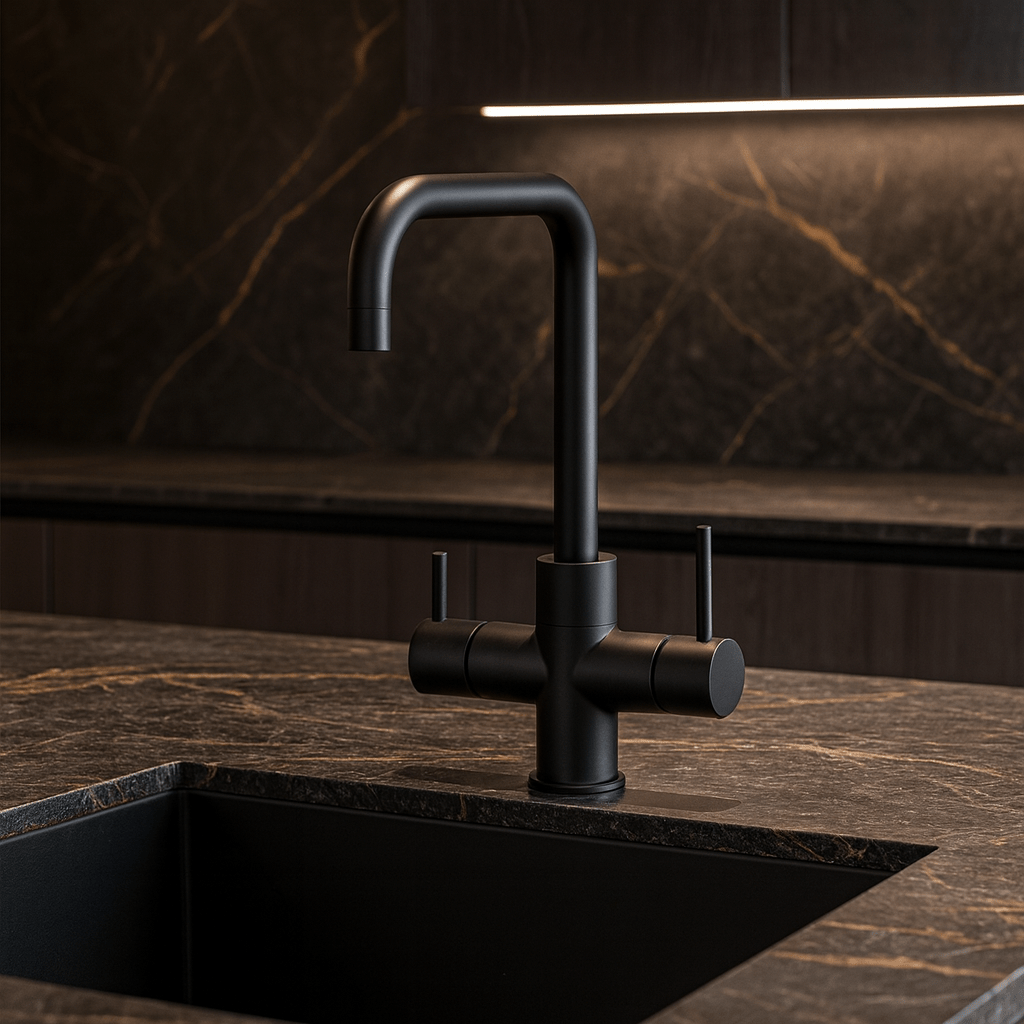When choosing between bottled water and tap water purified by a water purifier, it's important to consider several factors. While bottled water is readily available, a water purifier like a reverse osmosis system offers significant long-term benefits. These systems remove up to 99% of unwanted substances from tap water, provide consistently pure drinking water, and are ultimately more cost-effective and environmentally friendly than regularly buying plastic bottled water.
What are the pros and cons of bottled water compared to a water purifier?
When comparing bottled water and water purifiers, several factors come into play that can determine which option is best for your situation. Let's compare the most important aspects.
| Aspect | Bottled water | Water purifier (RO system) |
|---|---|---|
| Purchase costs | Low (per bottle) | Higher (one-time investment) |
| Long-term costs | High (continuous issue) | Low (after initial investment) |
| Ease of use | Immediately available | Constantly available from our own tap |
| Environmental impact | High (plastic waste) | Low (sustainable solution) |
| Water quality | Variable per brand | Consistently high purity |
When we consider the long-term costs, the difference between the two options becomes clear. An average household that uses bottled water daily spends hundreds of euros annually. A water filter system like The Source requires a one-time investment, after which you can enjoy purified water for years with minimal maintenance costs.
The environmental impact of bottled water is a growing problem. Every plastic bottle we use contributes to plastic pollution. Moreover, the production and transportation of bottled water are energy-intensive. A water purifier like our reverse osmosis system produces up to 500% less wastewater compared to traditional filtration methods and eliminates the need for plastic bottles.
In terms of convenience, bottled water initially seems like the winner, but this advantage quickly vanishes when you consider the regular purchase, carrying, and storage of heavy bottles. With a water purifier, you always have pure water available, straight from your tap, without the hassle of empty bottles.
How reliable is the quality of bottled water compared to purified tap water?
The quality of bottled water and purified tap water is monitored by different standards and regulations. While both must meet legal requirements, there are significant differences in consistency and purity.
Bottled water is subject to food law and must meet specific quality requirements. However, studies show that bottled water can sometimes contain microplastics and other undesirable substances. Moreover, quality can vary between brands and even between different batches of the same brand.
Purified tap water that has been through a high-quality system like The Source, on the other hand, offers consistent quality . Our reverse osmosis system removes up to 99% of unwanted substances, including:
- Heavy metals
- Pesticides
- Hormones
- Drug residues
- Chlorine
- Lime
The purity of water that has passed through a water purifier can be easily measured with a TDS (Total Dissolved Solids) meter. This measures the amount of dissolved solids in the water. Tap water in the Netherlands has average TDS values that vary by region, while water filtered through a reverse osmosis system shows significantly lower values, indicating higher purity.
Regarding minerals, a reverse osmosis system does indeed remove most minerals from the water. Some see this as a disadvantage, but it's important to remember that we primarily get the minerals we need from our diet, not from water. Moreover, the final filtering step in The Source (the post-treatment) ensures a perfect, fresh taste.
Tap water regulations in the Netherlands are strict, with frequent inspections by water companies. By adding a water purifier, you create an additional safety barrier that removes any contaminants that may still end up in the tap water.
In conclusion, a water purifier like The Source delivers more reliable and consistent water quality than bottled water, with the added benefit of lower long-term costs and a significantly smaller environmental impact. For those who value health, sustainability, and convenience, a water purifier offers clear advantages over bottled water.
